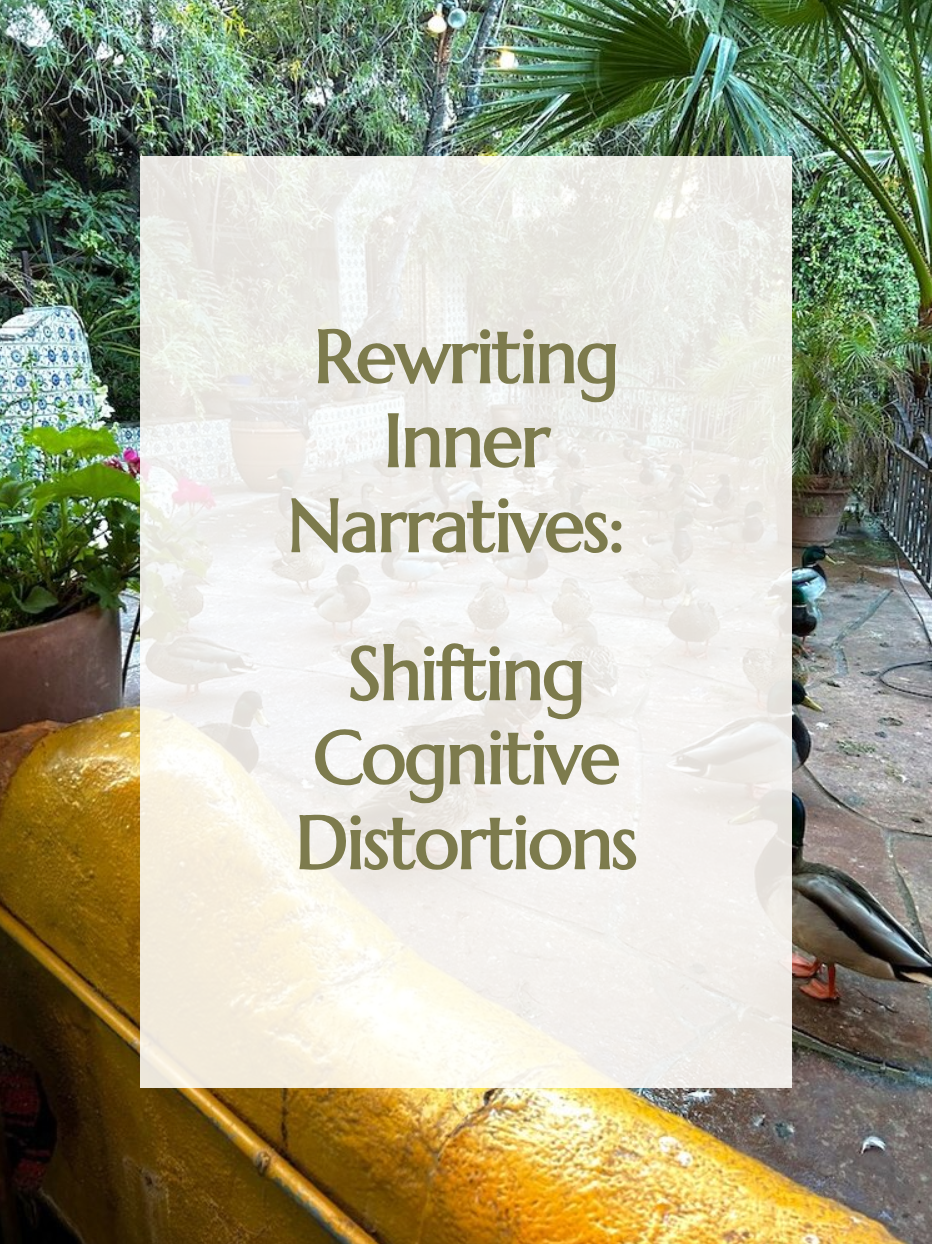
Rewriting Inner Narratives: Shifting Cognitive Distortions
We all carry stories about who we are, what we deserve, and how the world works, but often those stories are shaped by survival, not truth. Cognitive distortions, like overthinking, catastrophizing, or assuming the worst, can make life feel hopeless and keep you stuck in patterns of self-doubt. These thought loops aren’t facts, they’re protective habits your brain created under stress or trauma. The good news? Thanks to neuroplasticity, you can literally rewire your brain to think in ways that are calmer, kinder, and more accurate. In this post, you’ll learn how to identify common distortions, name them, and gently reframe them into more truthful narratives. You’ll also explore practical tools like awareness, compassionate self-talk, and perspective-shifting exercises to quiet the critic and build new mental habits. If you’re ready to move past survival mode and start creating a more compassionate, empowering story for yourself, this guide gives you the tools to begin rewriting your inner narrative today.

Practicing Self-Compassion: Quieting the Inner Critic and Replacing Negative Self-Talk
Struggling with negative self-talk or an inner critic that won’t quit? You’re not alone. That harsh inner voice may sound familiar—like a parent, a teacher, or years of impossible standards—but it doesn’t define you. Self-compassion is more than “being nice to yourself.” Research shows it can rewire your brain, strengthen emotional regulation, and improve how you respond to stress and failure. In this article, you’ll learn why self-compassion matters, why it can feel difficult to practice, and six practical tools to begin building a kinder inner voice. From naming and separating your critic, to using gentle affirmations, mirror work, and reframing negative narratives, these strategies support mental wellness and nervous system healing without toxic positivity. You’ll also discover how small acts of self-kindness build authentic self-worth and resilience over time. With practice, you can shift from criticism to compassion and learn to treat yourself with the same patience and grace you extend to others.
